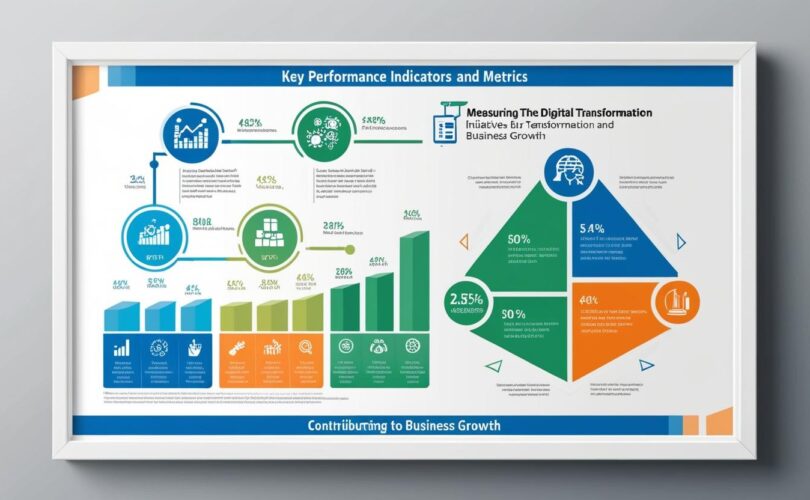Introduction
In today’s fast-paced digital age, businesses across various industries are embarking on digital transformation journeys to stay competitive and innovative. However, the success of these initiatives is not solely measured by the implementation of new technologies, but by the tangible impact they have on the organization’s overall performance and strategy. As Peter Drucker once said, “The best way to predict the future is to create it,” and this is particularly true when it comes to digital transformation.
Key Components of Digital Transformation
Digital transformation encompasses a broad range of activities, including the adoption of new technologies, the redefinition of business processes, and the cultivation of a digital culture within the organization.
Technical Feasibility
A crucial aspect of any digital transformation initiative is the technical feasibility of the proposed solutions. This involves assessing the hardware and software requirements, the skilled labour needed, and the integration of new technologies with existing systems. Conducting a thorough feasibility study, similar to those used in project management, helps in identifying potential technical hurdles and ensuring that the necessary resources are available.
Financial Viability
The financial viability of a digital transformation project is another critical factor. This includes estimating the costs associated with the project, such as investment in new technologies, training staff, and potential downtime, as well as projecting the expected return on investment. Financial modeling and cost-benefit analysis are essential tools in this phase, helping to determine whether the project will generate sufficient profit to justify the investment.
Market and Operational Feasibility
Understanding the market demand and operational feasibility is vital. This involves conducting market research to assess consumer demand, analyzing the competitive landscape, and evaluating the operational changes required to support the new digital initiatives. A well-conducted market analysis and operational feasibility study provide valuable insights into the potential risks and rewards of the project.
Metrics for Measuring Success
To measure the success of digital transformation initiatives, several key metrics should be considered:
Financial Metrics
– Return on Investment (ROI): This is a primary metric to evaluate the financial success of the project. It measures the return generated by the investment in digital transformation.
– Cost Savings: Assessing the reduction in operational costs due to increased efficiency and automation.
– Revenue Growth: Evaluating the impact on revenue through enhanced customer engagement, improved sales processes, and new business models.
Operational Metrics
– Process Efficiency: Measuring the improvement in process efficiency, such as reduced cycle times and increased productivity.
– Customer Satisfaction: Tracking customer satisfaction through feedback and Net Promoter Score (NPS).
– **Employee Engagement:** Assessing the impact on employee engagement and productivity.
Strategic Metrics
– Innovation Index: Evaluating the organization’s ability to innovate and bring new products or services to market.
– Market Share: Assessing the impact on market share and competitive positioning.
– Customer Retention: Measuring the improvement in customer retention rates.
As Michael Porter noted, “The essence of strategy is choosing what not to do,” and this is particularly relevant in the context of digital transformation. Focusing on the right metrics helps organizations make strategic choices that align with their overall business goals.
Implementation and Monitoring
The success of digital transformation initiatives also depends on effective implementation and continuous monitoring. Here are some key steps:
Change Management
Implementing a robust change management plan is crucial to ensure that all stakeholders are aligned with the new digital initiatives. This includes training programs, communication strategies, and cultural transformation efforts.
Continuous Monitoring
Regularly monitoring the progress of the digital transformation project against the set metrics is essential. This involves conducting periodic reviews, gathering feedback from stakeholders, and making necessary adjustments to the strategy.
Technology Integration
Ensuring seamless integration of new technologies with existing systems is vital. This may involve working with technology partners, conducting thorough testing, and addressing any integration issues promptly.
Conclusion
Measuring the success of digital transformation initiatives is a multifaceted task that requires a comprehensive approach. By focusing on technical, financial, market, and operational feasibility, and by using the right metrics to measure success, organizations can ensure that their digital transformation journeys are both effective and sustainable.
If you are embarking on a digital transformation journey and need expert guidance, consider partnering with Samunnati Ventures. With over 20 years of experience in feasibility studies, business planning, financial modelling, and corporate strategy across various industries, we can help you navigate the complexities of digital transformation and achieve your business goals. Contact us today to learn more about how we can support your organization’s success.







